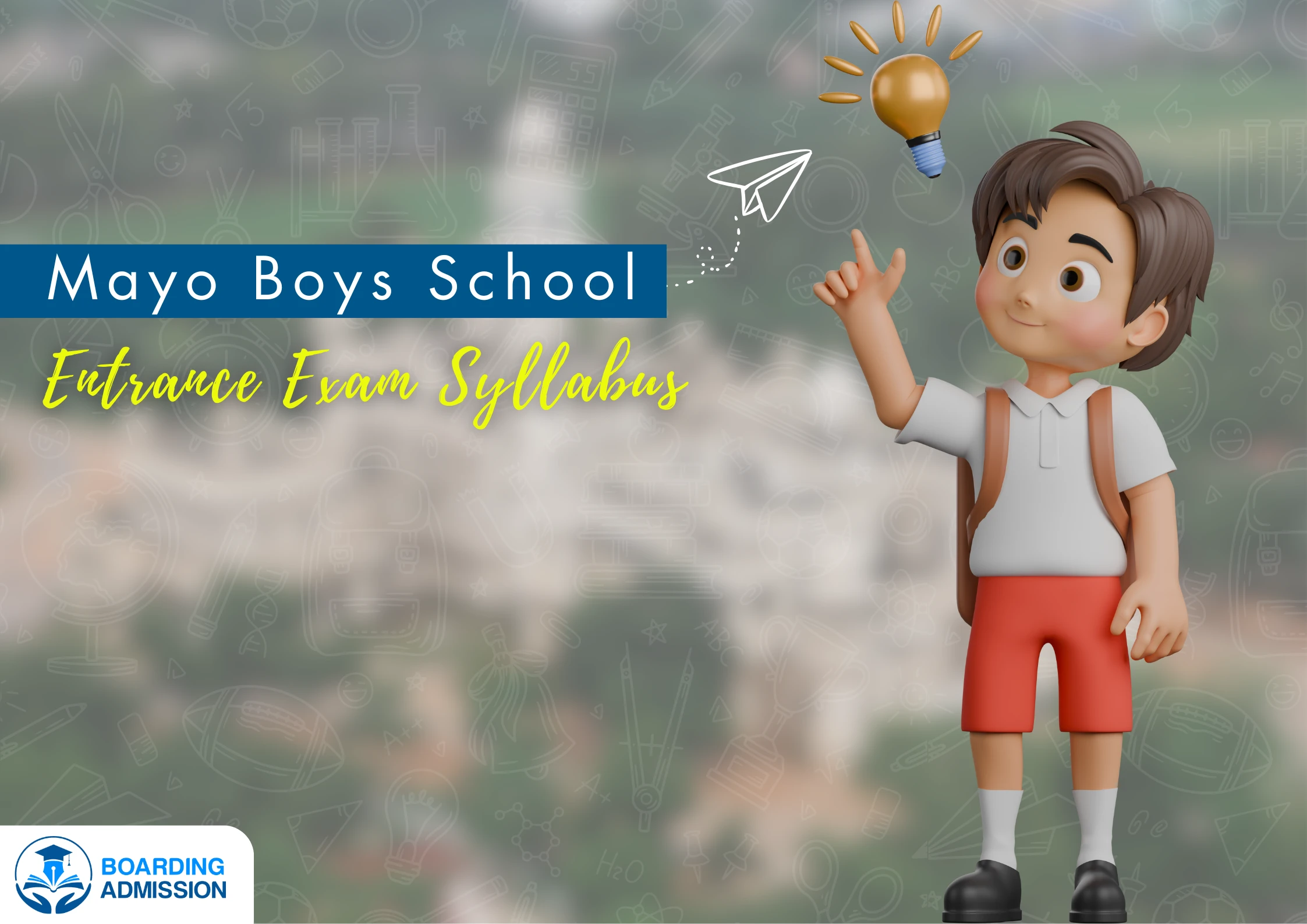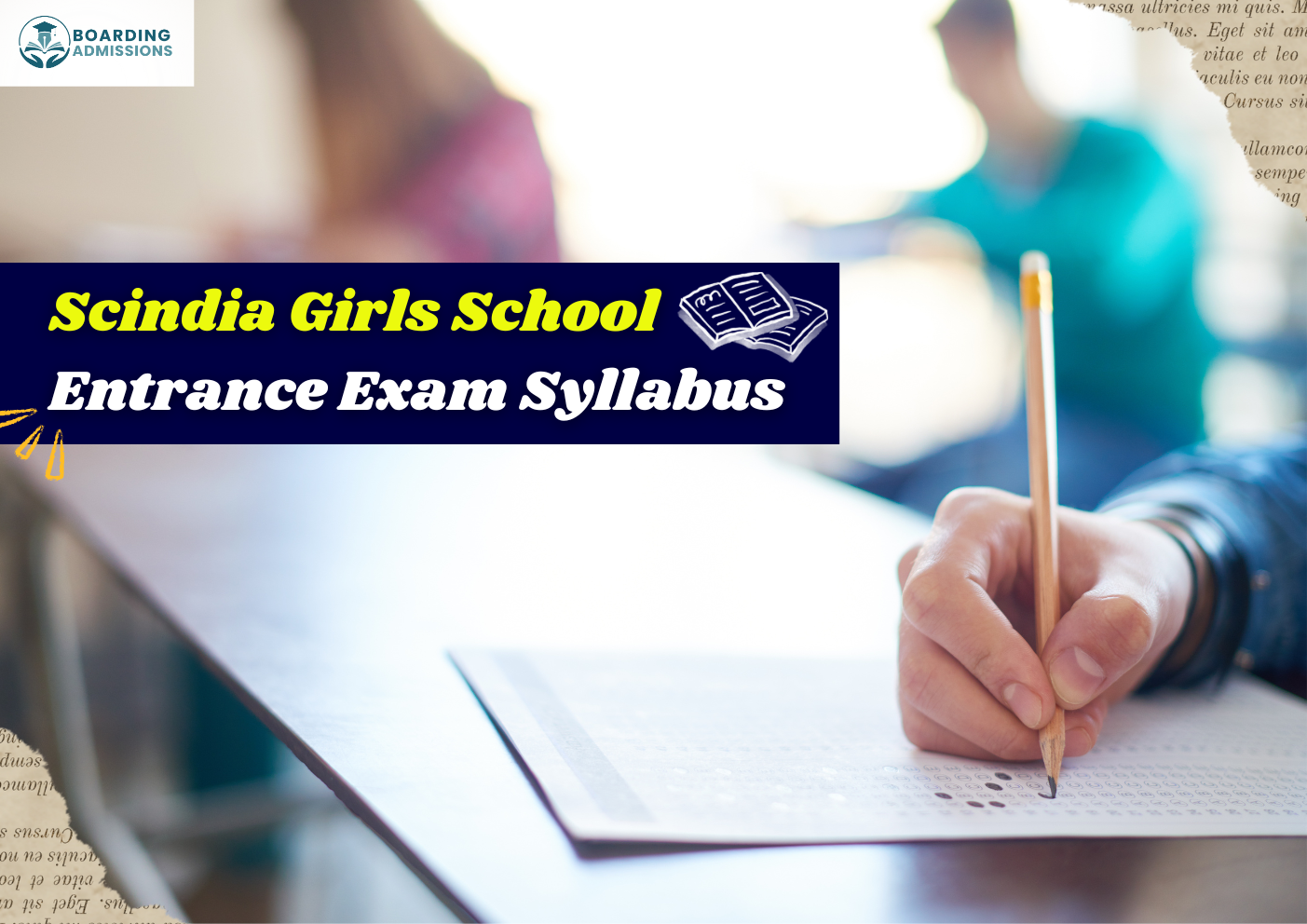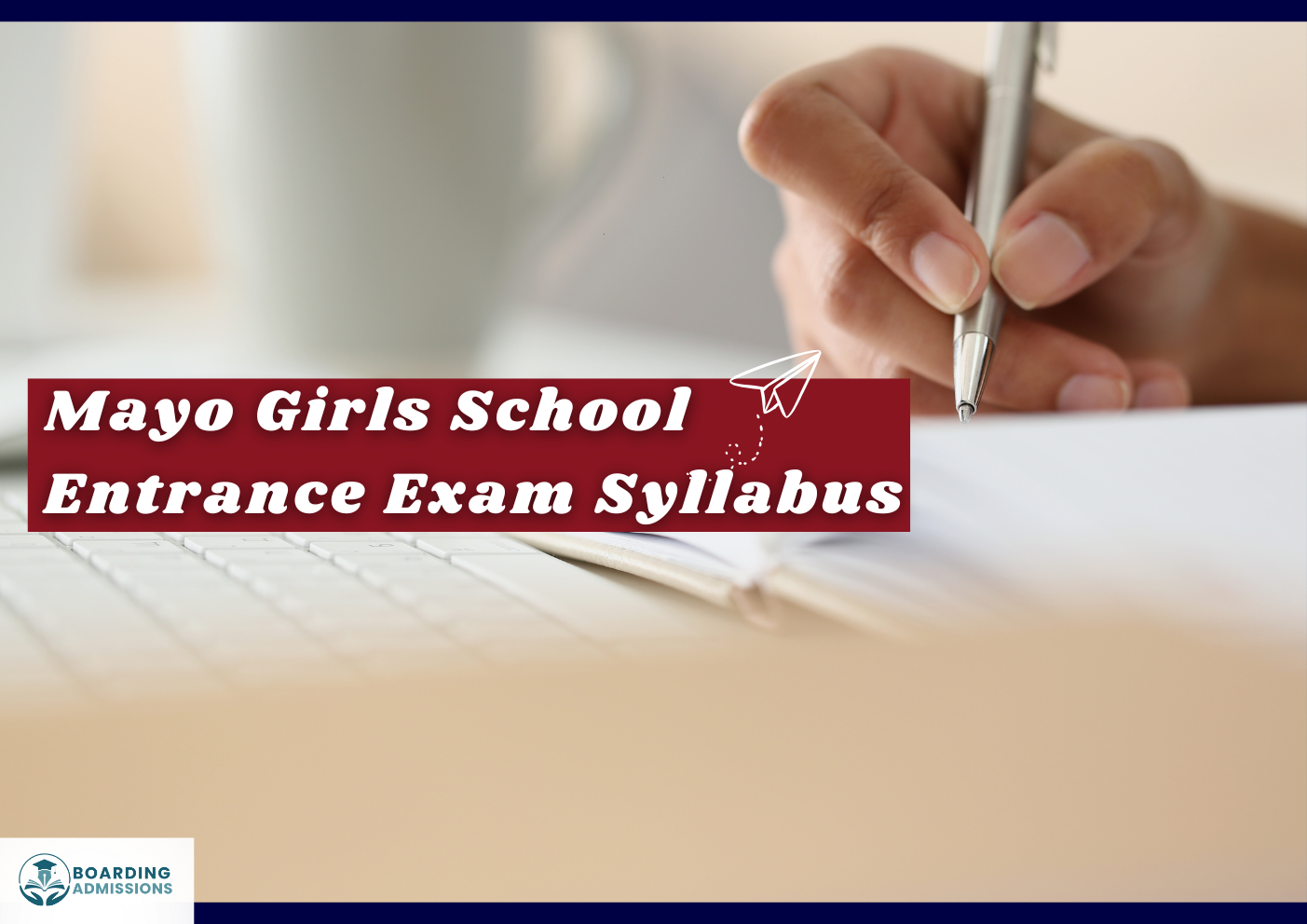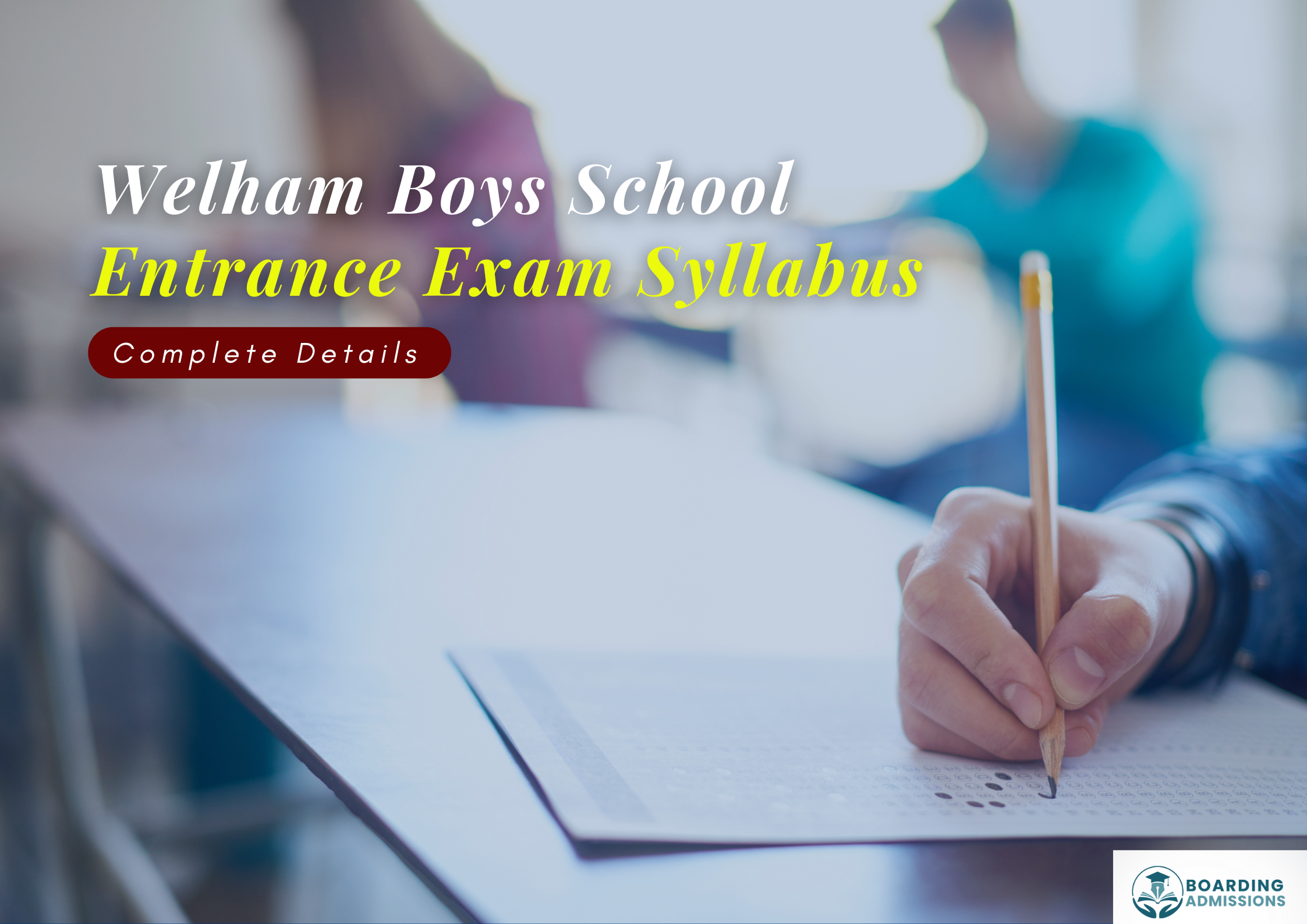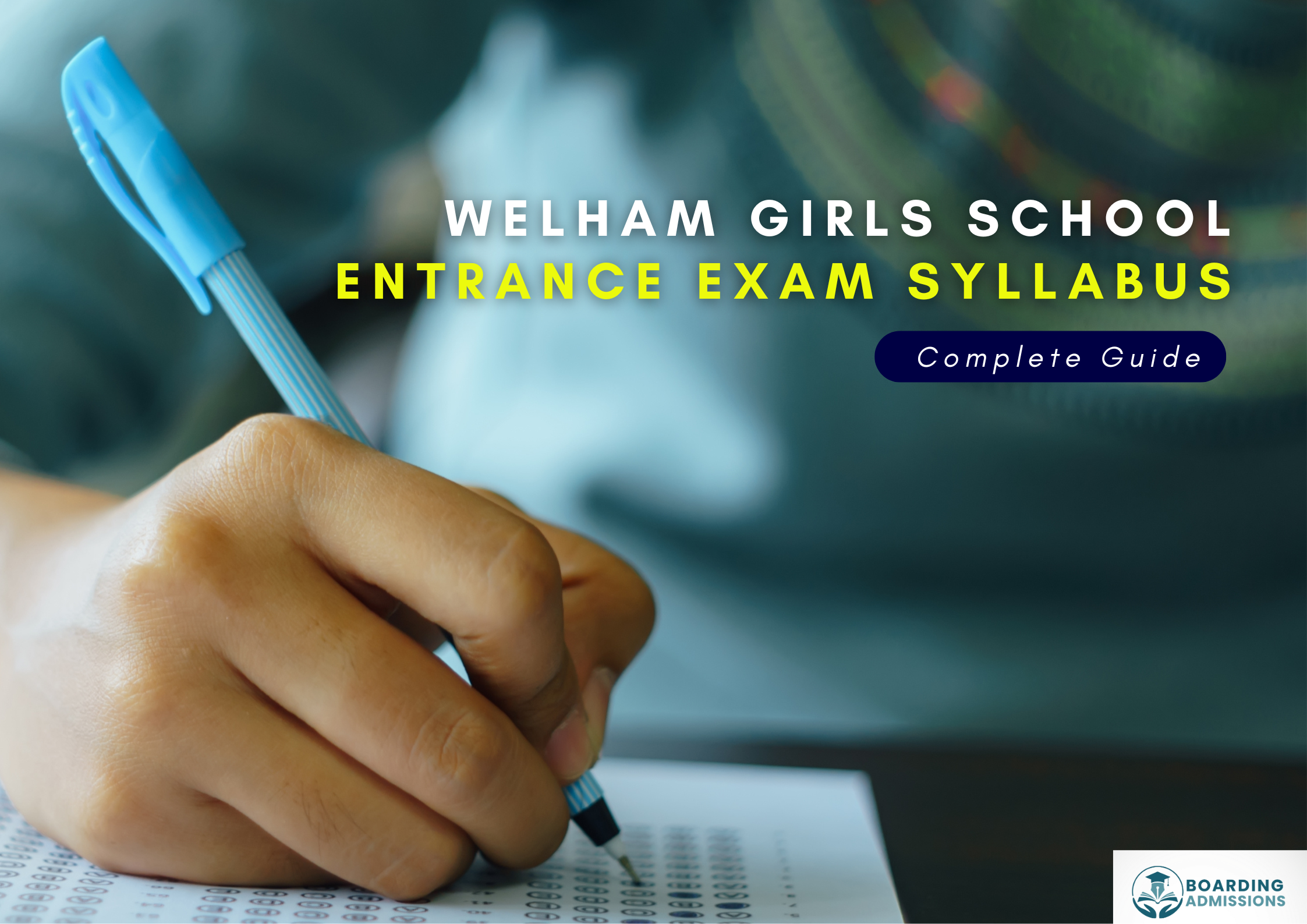Mayo College, Ajmer is one of India’s most prestigious boys’ boarding schools, known for its holistic education and rich heritage.
Admission to the school is based on a well-structured entrance exam that assesses a student’s language proficiency, communication skills, and analytical thinking.
This article provides a detailed overview of the Mayo Boys Entrance Exam Syllabus, helping parents and students prepare confidently.
Overview of the Mayo Boys Entrance Exam Syllabus:

The entrance exam conducted by Mayo College is known as the Common Aptitude Analysis (CAA). The test does not aim at evaluating rigid grammar rules but rather focuses on a student’s command over the English language, expression, vocabulary, and creativity in thought.
The test is typically MCQ-based (Multiple Choice Questions) and is conducted online, making it accessible for students from across the country.
Class-Wise Syllabus Breakdown
Class 4 – Functional/Communicative English
- Parts of Speech: Noun, Pronoun, Verb, Adjective, Adverb, Preposition, Conjunction
- Punctuation & Capitalization
- Articles: A, An, The
- Spellings
- Tenses: Present, Past, Future
- Vocabulary: Homophones, One Word Substitution, Choose the correct pair, Odd one out
Class 5 – Functional/Communicative English
- Same as Class 4, with additions:
- Figures of Speech: Smile, Metaphor, Personification
- Subject-Verb Agreement
- Idioms
Class 6 – Functional/Communicative English
Continued emphasis on:
- Direct and Indirect Speech
- All parts of speech
- Punctuations, Spellings
- Vocabulary expansion with context-based options
- More focus on subject-verb agreement and figures of speech
Class 7 – Functional/Communicative English
Expanded Grammar Topics:
- Modals
- Infinitives, Gerunds, Participles
- Prefix/Suffix
- Sentence Types: Simple, Compound, Complex
- Jumbled Sentences
- Figures of Speech: Simile, Metaphor, Onomatopoeia, Personification, Idiom, Alliteration
- Vocabulary Focus: Homophones, Homonyms, Odd One Out, Synonyms, Antonyms
Class 8 – Functional/Communicative English
All topics from Class 7 with additional depth in:
- Jumbled Sentences
- Active & Passive Voice
- Complex Figures of Speech: Irony, Oxymoron, Hyperbole
- More detailed vocabulary assessment including meanings
Class 9 – Functional/Communicative English
- Comprehensive review of all previous topics
- Added figures of speech like:
- Metonymy
- Pathetic Fallacy
- Pun
- Complex Vocabulary and Grammar Assessment
- Full evaluation of writing style, comprehension, and clarity
Check Out: Mayo Boys School | Admission Process
Key Focus Areas
To succeed in the Mayo Boys School Entrance Exam Syllabus, students should focus on:
- Clear understanding of English grammar
- Ability to express thoughts fluently and creatively
- Strong vocabulary and use of idiomatic language
- Critical thinking for jumbled or analytical questions
- Practice of reading comprehension and writing clarity
Why Early Preparation Matters
Starting preparation early helps students become familiar with the structure and themes of the exam. For aspirants looking to join prestigious institutions like Boys Boarding Schools in India, particularly Mayo College, understanding the detailed syllabus is the first step towards success.
Use practice papers, interactive grammar tools, and vocabulary games to make learning engaging and effective.
Frequently Asked Questions (FAQs)
Ques 1. Which subjects are included in the exam?
Ans. The exam primarily includes English, Hindi, and Mathematics.
Ques 2. Are spellings tested in every class?
Ans. Yes, correct spelling is part of the test from Class 4 through Class 9.
Ques 3. Are all questions language-based?
Ans. No, the exam also includes mathematics and Hindi as per the full aptitude test format.
Ques 4. How important is reading for preparation?
Ans. Very important. Reading helps improve vocabulary, sentence structure, and comprehension.
Ques 5. What is the focus of the vocabulary section?
Ans. It includes homophones, one-word substitutions, choosing correct pairs, and odd-one-out exercises.







